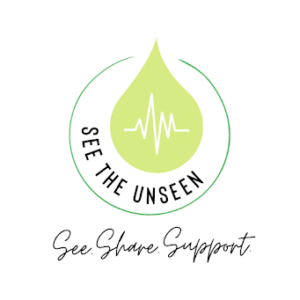Written by: Tim Kaboya, a senior international student at Oklahoma Christian University
How can you help without being condescending?
Google defines “condescending” as “acting in a way that betrays a feeling of patronizing superiority.”
Every so often most of us are called on to help out those we deem less fortunate, or, to use a euphemism, those who had a “humbler upbringing.” To do this without being condescending could be a challenge. I think, on the issue of help, individuals in the nonprofit sector offer the best answer to this.
An African student at Georgetown University once asked Bono how, as a young African, she could take help back to Africa without being condescending.
For those who know Bono as jus a rock star with U2, a question like this seems ironic. However, he also doubles as a globetrotting aid crusader, constantly on the move from Africa, America, Asia and Europe or whatever other continents there are. In his work he skirts between meetings with CEOs, presidents and other public figures, then onto Africa where he goes to the poorest, looking for whatever issues they might have. He recently asked all global leaders to cancel the debts of some of the countries’ poorest, and oh, yes they listened.
In answer to the question, Bono said it was hard to answer, especially since he anticipates the time when somebody, such as the student, would be the one leading the aid crusade other than him. He then added, “I think we are called to serve each other while adding a sense of common decency.”
Thank you Bono, fantastic answer! You would think that, judging from his work, he would have a more articulate response that would answer the question. This article was featured in The Atlantic and a critical blog aptly titled Africa Is A Country did an interesting analysis of it. The blog talked about how The Atlantic did a bad report of the entire event, preferring to mention just a few key questions instead of what transpired at the event.
Allow me to back up a little bit, to share some personal experiences with this question of giving aid without being condescending. Most of us watch TV series on Hulu, and there are times they show a picture of a malnourished child in Africa. It always pains me to think that there are many Americans who just get to see this picture of Africa. This question is one particular reason why the Kony 2012 video was controversial and some didn’t like it. Personally I didn’t like the video, and I am not about to dwell on why. Maybe I should tell you about an old lady I met who was taken aback when I told her I could drive or that I had a car. Said lady had looked at me with pity and now was surprised that I had a car!
I don’t really mind the old lady or the countless stereotypical references I find of myself on where I come from. If I didn’t come from Africa, I wouldn’t know any better. Especially with a bloodthirsty Western media that is hungry for negative news. A war in Mali, or genocide in Rwanda easily boils down to a “troubled” Africa. The particular old lady probably felt pity for someone who came from Africa, though I wouldn’t consider myself to be a pitiful African. It is normal to feel pity for anybody in any situation. I believe it is in this vein that we all serve others. We all feel pity, but often the help one gives may not amount to anything, especially when we give out of self-gratification, which is close to condescension.
So how do you aid somebody without being condescending? Or how do you really help out a friend? Therein lies the answer to why countless aid projects fail. For example, if an individual or organization is giving food to, say, the homeless, is that the best way to help them? I mean, it is nice for a homeless person to experience a random act of kindness, but what change will it bring in their daily life? Maybe that is the best you could do, but I think this is a question everyone must think of before they decide to give. Therein lies the answer to why aid to many African countries remains largely unsuccessful. Think about it: if your dad gives you money without caring what you use it for, do you end up using it for its intention? The truth is that by writing you a “blank check,” he is not really helping you.
When you want to help somebody, take time to think if you are really helping him or her. Often when any of us are called to help out a friend in need, it is more important to focus on their need, rather than that “self-gratification” that comes from having given to help out. Only when you really listen to their needs can you be of help.
Ernesto Sirolli, an aid worker in Africa for over 20 years recently did an immensely popular TED talk titled: “Shut up and Listen.” In this, he recounted his failures working in Africa and how he only succeeded when he listened to what the people wanted. I think “Shut up and Listen” is a pretty good response to the question of how you can help without being condescending. Or even how you can really help out that friend of yours in need. If they don’t ask you for help, don’t give any—respect them! Instead, listen to them, and then you will know how to help. That is Ernesto Sirolli’s answer and I think it is fairly true. So I leave you with the question: how can you give without being condescending? How can you really help out that friend of yours?













Be First to Comment